第47章 CHAPTER VIII(1)
On the 29th of July, 1835, Charlotte, now a little more than nineteen years old, went as teacher to Miss W-'s. Emily accompanied her as a pupil; but she became literally ill from home-sickness, and could not settle to anything, and after passing only three months at Roe Head, returned to the parsonage and the beloved moors.
Miss Bronte gives the following reasons as those which prevented Emily's remaining at school, and caused the substitution of her younger sister in her place at Miss W-'s:-"My sister Emily loved the moors. Flowers brighter than the rose bloomed in the blackest of the heath for her;--out of a sullen hollow in a livid hill-side, her mind could make an Eden. She found in the bleak solitude many and dear delights; and not the least and best-loved was--liberty. Liberty was the breath of Emily's nostrils; without it she perished. The change from her own home to a school, and from her own very noiseless, very secluded, but unrestricted and unartificial mode of life, to one of disciplined routine (though under the kindest auspices), was what she failed in enduring. Her nature proved here too strong for her fortitude. Every morning, when she woke, the vision of home and the moors rushed on her, and darkened and saddened the day that lay before her. Nobody knew what ailed her but me. Iknew only too well. In this struggle her health was quickly broken: her white face, attenuated form, and failing strength, threatened rapid decline. I felt in my heart she would die, if she did not go home, and with this conviction obtained her recall.
She had only been three months at school; and it was some years before the experiment of sending her from home was again ventured on."This physical suffering on Emily's part when absent from Haworth, after recurring several times under similar circumstances, became at length so much an acknowledged fact, that whichever was obliged to leave home, the sisters decided that Emily must remain there, where alone she could enjoy anything like good health. She left it twice again in her life; once going as teacher to a school in Halifax for six months, and afterwards accompanying Charlotte to Brussels for ten. When at home, she took the principal part of the cooking upon herself, and did all the household ironing; and after Tabby grew old and infirm, it was Emily who made all the bread for the family; and any one passing by the kitchen-door, might have seen her studying German out of an open book, propped up before her, as she kneaded the dough; but no study, however interesting, interfered with the goodness of the bread, which was always light and excellent. Books were, indeed, a very common sight in that kitchen; the girls were taught by their father theoretically, and by their aunt, practically, that to take an active part in all household work was, in their position, woman's simple duty; but in their careful employment of time, they found many an odd five minutes for reading while watching the cakes, and managed the union of two kinds of employment better than King Alfred.
Charlotte's life at Miss W-'s was a very happy one, until her health failed. She sincerely loved and respected the former schoolmistress, to whom she was now become both companion and friend. The girls were hardly strangers to her, some of them being younger sisters of those who had been her own playmates.
Though the duties of the day might be tedious and monotonous, there were always two or three happy hours to look forward to in the evening, when she and Miss W- sat together--sometimes late into the night--and had quiet pleasant conversations, or pauses of silence as agreeable, because each felt that as soon as a thought or remark occurred which they wished to express, there was an intelligent companion ready to sympathise, and yet they were not compelled to "make talk."Miss W- was always anxious to afford Miss Bronte every opportunity of recreation in her power; but the difficulty often was to persuade her to avail herself of the invitations which came, urging her to spend Saturday and Sunday with "E." and "Mary," in their respective homes, that lay within the distance of a walk.
She was too apt to consider, that allowing herself a holiday was a dereliction of duty, and to refuse herself the necessary change, from something of an over-ascetic spirit, betokening a loss of healthy balance in either body or mind. Indeed, it is clear that such was the case, from a passage, referring to this time, in the letter of "Mary" from which I have before given extracts.
"Three years after--" (the period when they were at school together)--"I heard that she had gone as teacher to Miss W-'s. Iwent to see her, and asked how she could give so much for so little money, when she could live without it. She owned that, after clothing herself and Anne, there was nothing left, though she had hoped to be able to save something. She confessed it was not brilliant, but what could she do? I had nothing to answer.
She seemed to have no interest or pleasure beyond the feeling of duty, and, when she could get, used to sit alone, and 'make out.'